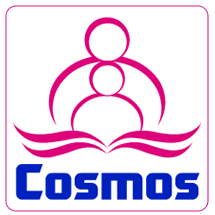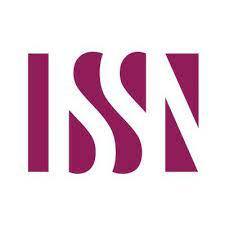Role of Discussion Method in Developing Logical Reasoning in Students at University Level
DOI:
https://doi.org/10.5281/ijete.v1i3.33Keywords:
Discussion Method, Logical Reasoning, Inductive Reasoning, Detective ReasoningAbstract
This study was conducted to find out the role of discussion method in developing logical reasoning in students at university level. The current study was quantitative and descriptive in nature and survey method was conducted for the data collection. Simple random sampling technique was used for the selection of sample. A questionnaire based on five-point Likert scale was used as a research tool in this study. The researcher personally visited all the department of faculty of social sciences in university of Kotli Azad Jammu and Kashmir and collected the data. Statistical package for Social Science software (SPSS) was used for the analysis of data. The researcher applied frequency, percentage and mean for the analysis of data. It was found that students find it easy to draw conclusions from patterns and trends that they observe and students faced new information that they often make educated guesses about what might happen next. It is recommended that teachers may involve students in different activities according to the patterns and trends, and teacher encourage them.
Downloads
References
References
Akmaljonovich, K. J. (2022). Role Of Philosophy Education In Forming Intellectual Culture In
Future Teachers. Journal of Positive School Psychology, 6(11), 1366-1371.
Alannasir, W. (2020). Characteristic-based development students aspect. International Journal
of Asian Education, 1(1), 29-36.
Bao, Q., et al. (2023). "Contrastive Learning with Logic-driven Data Augmentation for Logical
Reasoning over Text." arXiv preprint arXiv:2305.12599.
Beeson, P. M., Rising, K., Sachs, A., & Rapcsak, S. Z. (2022). Common predictors of spoken
and written language performance in aphasia, alexia, and agraphia. Frontiers in Human
Neuroscience, 16, 719.
Bringsjord, S., Giancola, M., & Govindarajulu, N. S. (2023). Logic-based modeling of cognition. The Handbook of Computational Psychology. Cambridge University Press, Cambridge (forthcoming). http://kryten. mm. rpi. edu/Logic basedComputationalModelingOfCognition. pdf.
Brunton, G., & Wilson, T. (2020). Terrorism: Its Past, Present & Future Study-A Special Issue to
Commemorate CSTPV at 25. Contemporary Voices: St Andrews Journal of International Relations, 1(4).
Castañeda, L. E. G., Sklarek, B., Dal Mas, D. E., & Knauff, M. (2023). Probabilistic and deductive reasoning in the human brain. NeuroImage, 275, 120180.
Cheah, H. M. and L. L. Lee (2022). Higher Education in Singapore: Perspectives and Future
Orientation. Education in Singapore: People-Making and Nation-Building, Springer: 87-116.
Garcia-Garcia, E. and X. Eekhout (2023). Responsible Research and Innovation Learning Facilitation. Ethics and Responsible Research and Innovation in Practice: The ETHNA System Project, Springer: 137-154.
Gökalp, E. and V. Martinez (2022). "Digital transformation maturity assessment: development of the digital transformation capability maturity model." International Journal of Production Research 60(20): 6282-6302.
Guljakhon, U. and P. Shakhodat (2020). "Developing teachersprofessional competence and critical thinking is a key factor of increasing the quality of education." Mental Enlightenment Scientific-Methodological Journal: 66-75.
Jandrić, P., Martinez, A. F., Reitz, C., Jackson, L., Grauslund, D., Hayes, D., ... & Hayes, S.
(2022). Teaching in the age of Covid-19—The new normal. Postdigital Science and Education, 4(3), 877-1015.
Jankelova, N., & Puhovichova, D. (2022). Managerial decision-making in the era of Industry
0. Industry 4.0, 7(2), 71-75.
Kistruck, G. M., & Slade Shantz, A. (2022). Research on grand challenges: Adopting an
abductive experimentation methodology. Organization Studies, 43(9), 1479-1505.
Mihalache, G. (2019). Heuristic inquiry: Differentiated from descriptive phenomenology and
aligned with transpersonal research methods. The Humanistic Psychologist, 47(2), 136.
Mogea, T. (2019). Enhancing Students’ Speaking Ability Through Small Group Discussion
Technique to the Firts Year Students of SMA Negeri 1 Ratahan.
Muñoz, J. L. R., Ojeda, F. M., Jurado, D. L. A., Peña, P. F. P., Carranza, C. P. M., Berríos, H.
Q., ... & Vasquez-Pauca, M. J. (2022). Systematic review of adaptive learning technology for learning in higher education. Eurasian Journal of Educational Research, 98(98),
Nguyen, H. T., Goebel, R., Toni, F., Stathis, K., & Satoh, K. (2023). How well do SOTA legal
reasoning models support abductive reasoning?. arXiv preprint arXiv:2304.06912.
Nilson, L. B. (2016). Teaching at its best: A research-based resource for college instructors, John
Wiley & Sons.
O'Grady, N., & Shaw, D. (2023). Resilience, responsibility and state abandon: The changing role
of the government in emergencies. Political Geography, 100, 102796.
Peregrin, J. and V. Svoboda (2023). "Establishing Logical Forms: What is assigned to what, how and why." Logic and Logical Philosophy: 1-22.
Pruś, J. and P. Sikora (2023). "The Dialectical Principle of Charity: A Procedure for a Critical
Discussion." Argumentation: 1-24.
Qomariyah, S. and R. Darmayanti (2023). "Development of High School Students' Mathematical
Reasoning Ability Instruments on Three Dimension Material." JEMS: Jurnal Edukasi Matematika dan Sains 11(1): 249-260.
Rinekso, A. B., & Muslim, A. B. (2020). Synchronous online discussion: teaching English in
higher education amidst the covid-19 pandemic. JEES (Journal of English Educators Society), 5(2), 155-162.
Schiele, H., Krummaker, S., Hoffmann, P., & Kowalski, R. (2022). The “research world café” as
method of scientific enquiry: Combining rigor with relevance and speed. Journal of business research, 140, 280-296.
Schraw, G., Crippen, K. J., & Hartley, K. (2006). Promoting self-regulation in science education:
Metacognition as part of a broader perspective on learning. Research in science education, 36, 111-139.
Sikhosana, L. (2022). Clarifying the significance of instructional methodologies for
environmental education integration. International Journal of Research in Business and Social Science (2147-4478), 11(7), 240-248.
Sim, J., & Waterfield, J. (2019). Focus group methodology: some ethical challenges. Quality &
quantity, 53(6), 3003-3022.
Ssemugenyi, F. (2023). Teaching and learning methods compared: A pedagogical evaluation of problem-based learning (PBL) and lecture methods in developing learners’ cognitive abilities. Cogent Education, 10(1), 2187943.
Tursunovich, R. I. (2022). Modern Methods in the Methodology of Teaching a Foreign
Language. Central Asian Journal of Theoretical and Applied Science, 3(12), 146-152.
Vo, D. V., & Csapó, B. (2022). Measuring inductive reasoning in school contexts: a review of
instruments and predictors. International Journal of Innovation and Learning, 31(4), 506-525.
Wang, J., Tigelaar, D. E., Luo, J., & Admiraal, W. (2022). Teacher beliefs, classroom process
Wu, C. L., Chen, P. Z., & Chen, H. C. (2022). Measuring conceptual associations via the
development of the Chinese visual remote associates test. Frontiers in Psychology, 13, 799928.
Zelazo, P. D., et al. (1997). "Early development of executive function: A problem-solving
framework." Review of general psychology 1(2): 198-226.
Zhang, Y. (2022). The research on critical thinking teaching strategies in college English
classroom. Creative Education, 13(4), 1469-1485.
Zou, D., et al. (2023). "Effects of technology enhanced peer, teacher and self-feedback on
students’ collaborative writing, critical thinking tendency and engagement in learning." Journal of Computing in Higher Education 35(1): 166-185
Downloads
Published
How to Cite
Issue
Section
License
This is an Open Access article distributed under the term of the Creative Commons Attribution 4.0 International licenses permitting all use, distribution and reproduction in any medium provided the work is properly cited.

























